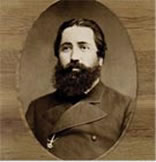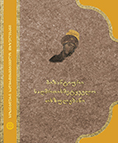 |
|
Scientific
and social journal SUMMARY
ZURAB TSUTSKIRIDZE A person who cannot see the fact that by accession to Russia Georgia was able to survive both spiritually and physically must not know the history or be very ignorant and ungrateful. Before unification with Russia, there were no public schools in Georgia. By 1786 provisions of the Ministry of Education of Russia, public schools began opening up. First such school opened up in Tbilisi in 1802 with 45 students. The same year, the school curriculum was approved. This school was an upper-class establishment attended by the children of the aristocracy. In 1804 “Tbilisi School of Nobles" opened up. It was attended by the children of the clergy, craftsmen and merchants along with the children of the aristocracy. In 1830, it was converted to a classic gymnasium (classic school). In 1817, a six-year Theological Seminary opened up. It existed exactly 100 years (until 1917) and has brought up many known people. In 1835, in Georgia there were 90 schools of all types with 1800 students. In 1851, Georgia already had three gymnasiums: Tbilisi and Kutaisi classic gymnasiums and Tbilisi commercial gymnasium. These were 787 students enlisted in these three gymnasiums. In 139 schools of all types, 5554 disciples were enlisted. In the 1940s, significant cultural events took place in Georgia. In 1850, Georgian theatre was founded, in 1851 a Georgian magazine “Tsiskari” was established, several educational institutions opened up, etc.
GVANTSA KOPLATADZE Since ancient times, South Georgia, or so-called upper Kartli, Meskheti has been populated by indigenous Georgians. The demographic picture did not change even after the Turks conquered this land and established their rule. The change took place in 1830, when Russia annexed a part of Akhaltsikhe Khanate to Georgia after defeating Turks in the Russian-Turkish war of 1828-1829. The main cause of this change was Muslimized Meskhetians deciding to renounce their nationality. The fact of the matter was that in the Russian-Turkish war, most of them fought on the Turkish side. After the defeat of the Turks, they chose to leave their homeland and move to Turkey instead of reuniting with motherland under the Christian Empire. For obvious reasons, the Russian government and the command of the Russian army did not prevent this process. Having a hostile population in the border region of Turkey was not beneficial to the Russian Empire. Russia needed to have a loyal subject population, who along with their interests would protect the interests of the Empire.
GRIGOL RUKHADZE The author confirms that the appointment of known representatives of the "United National Movement" - A.Kvitashvili, E.Zguladze, G. Getsadze, Z. Adeishvili, M. Saakashvili in Ukraine to high government positions made it clear that Georgia's ruling National Movement team of nine years was guided by a criminal international organization. Globalist reforms carried out by nationals destroyed the education system, science and culture. The Nationals obtained managerial positions of mass media and established immoral, anti-Christian and anti-national spirit, especially on TV. There were no national shrines, monuments or memorials left untouched by the punishing hand of local followers of globalization.
ELDAR BUBULASHVILI The article describes the activities of a well-known educator and a public figure of the late 19th and early 20th centuries, a native of southern Georgia (Meskheti) Konstantine Gvaramadze. The article speaks about his contributions to save the ancient Georgian cultural heritage. In order to preserve the existing Meskhetian art effects, he founded Akhaltsikhe Museum of local lore. He arranged ethnographic expeditions to collect antiquities which he exhibited in the museum. He donated unpublished manuscripts of his father, Ivan Gvaramadze to the museum and thus founded the department of manuscripts.
MAMUKA TSUKHISHVILI The activities of a famous 18th-19th century Georgian church leader, speaker, preacher and educator Gayoz Rector coincided with the most important era of Georgia. Gayoz Rector had voiced his opinion in almost every field of spiritual or secular disciplines. He founded and headed Telavi Theological Seminary. At times, he supervised dioceses of the Russian Church and worked on some translations. Strengthening the Russian-Georgian relationship should also be considered as an important achievement of his life. OnAugust 20th1783 during a sermon at Sioni Cathedral, he expressed his utmost delight about the Treaty of Georgievsk concluded between the Russian Empire and the East Georgian kingdom of Kartli-Kakheti. Gayoz Rector emphasized that King Erekle's political decision had a crucial importance on Georgian people’s not only physical, but also spiritual salvation.
BORIS DARCHIA The article refutes Rostom Chkheidze's allegations that Pavle Ingorokva’ scientific heritage was ignored. It denies that the authorities and specifically Alexandre Baramidze opposed it.
GIORGI GOGOLASHVILI Georgian classical writers have a unique attitude towards the Georgian language. According to them, the language is a writer's most important tool, the foundation of literature. David Kldiashvili is no exception. Unlike some writers, D. Kldiashvili has never written any critical and journalistic articles about the Georgian language; however, his work, particularly his memoirs “On the Path of my Life" provide rich material on this subject. As a rule, David Kldiashvili does not focus on a person’s appearance, external beauty. In his opinion, a person’s beauty and charm is in his speech, his tone and the use of Georgian language. The writer's overall standpoint on the Georgian language can be viewed in his words: “'The Georgian language is melodious and beautiful; it perfectly expresses any person’s thoughts, ideas and desires.”
The Seven Sages (of Greece) or Seven Wise Men was the title given by ancient Greek tradition to seven early-6th-century BC philosophers, political leaders and law-givers. Initially, there were about twenty nominations, but only seven would achieve the Sage status. The Wise Men were renowned for their wisdom, erudition, education and political thinking. Their work played a decisive role in the political, economic and cultural life of Hellas.
NIKO BERDZENISHVILI It is hard to find another country that has endured as many attacks, invasions, seizures and destructions as Georgia throughout its long history. Many powerful states have perished from the face of the earth, and many nations have died out. However, the Georgian people withstood countless adversities; unparalleled heroisms of Georgian people saved their national identity.
VALERIAN MACHARADZE The key issue discussed in the thesis is General Totleben's venture. In historic documents, it is unilaterally appraised as the Russian State's purposeful political act. In fact, Totleben blocked the joint march of the Russian-Georgian army towards Akhaltsikhe. He also prevented King Erekle's plan to build a grand coalition against Turkey. By that, he harmed not only the interests of the people of Georgia, but also the interests of the Russian state. The Russian government made a fatal mistake by appointing Totleben, a former foreign spy to such a difficult and responsible position as the commander of the army sent to Georgia. This action greatly harmed the interests of Georgia as well as the public interest of Russia.
|



